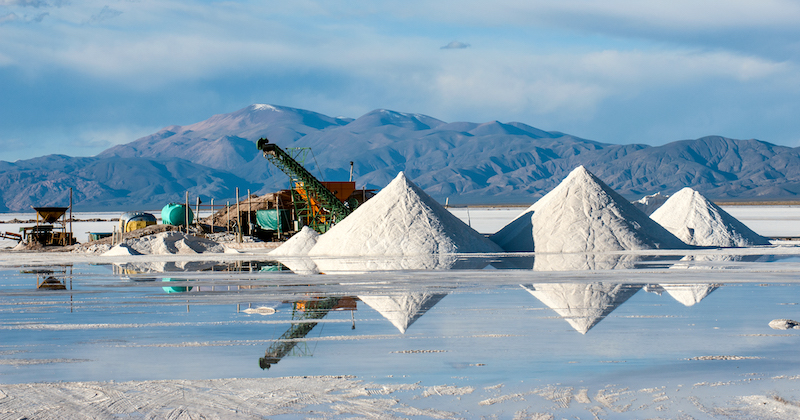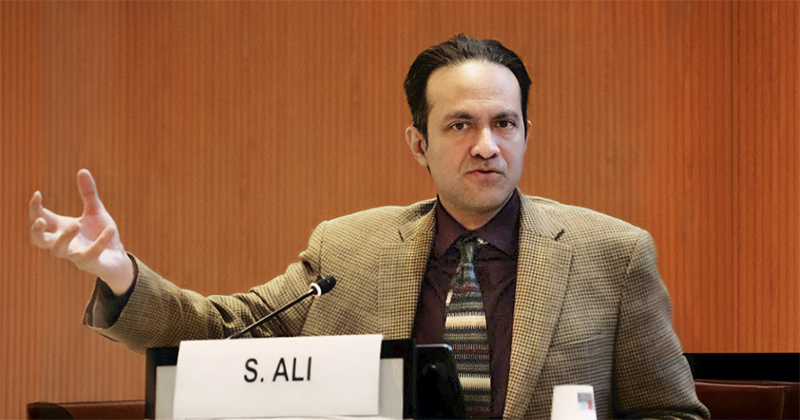


Creating a global minerals trust
Photos by iStock and Henrique Pacini Costa June 09, 2025
UD’s Saleem Ali proposes global minerals trust that would help countries work together to manage and share critical minerals fairly and sustainably
Demand for critical minerals like lithium, cobalt and rare earth elements continues to increase worldwide. To ensure that these critical elements are shared by all for the good of humanity, University of Delaware professor Saleem Ali has proposed the creation of a global minerals trust that would include independent audit mechanisms — like those used by the International Atomic Energy Agency — to ensure environmental and social safeguards.
Ali made the proposal in a paper published in Science along with a United Nations policy brief.
Through the proposed trust, countries would retain full sovereignty over their resources while committing to prioritize mineral flows for green technologies and avoid politicized supply disruptions. It would help countries work together to manage and share critical minerals fairly and sustainably, avoiding political fights, price shocks and environmental damage.
“Without a shared framework, we risk deepening global inequalities, triggering unnecessary resource conflicts and undermining our ability to deliver on climate goals,” said Ali, Blue and Gold Distinguished Professor of Energy and the Environment who holds joint appointments in the College of Earth, Ocean and Environment and the Joseph R. Biden Jr. School of Public Policy and Administration. “The idea we are presenting is to have a minerals trust that would give assurances to both the countries who are mining and those who are using the minerals. That way, we won’t have this kind of race to the bottom with more extractive projects, which are potentially more problematic.”
Ali, who also leads the Critical Minerals and Inclusive Energy Transition program at the United Nations University Institute for Water, Environment and Health, pointed out that as things currently stand, nations are often in conflict with each other over these critical minerals. Instead of working together, they often try to find alternative solutions that exclude the other party, which can cause environmental and economical damage to their own countries.

“Earlier conversations on this have been about how the United States can partner with ally countries — such as Australia and Canada — to have some kind of a security partnership on metals but that is not an optimal solution,” Ali said. “We need to think of this as a global problem. It’s not a problem to be solved between the Eastern allies and the Western allies, but one which needs a multilateral solution.”
Ali believes a trust is in humanity's best interest because these minerals are needed to make the planet sustainable, helping to advance green technologies and sustainable energy solutions. For the trust to be successful, countries that sometimes disagree with one another will need to find ways to cooperate, Ali said.
“There can be a way to cooperate rather than compete over these resources,” Ali said. “The minerals trust is a way by which we can do that, so we don't end up having more environmentally and economically damaging outcomes. This is not just an environmental case, it's an economic case, too, because you're going to be spending money on projects which are not going to be as economically viable, and that's a problem for a country like the United States. This trust is a way out of the current challenges that we have in terms of supply constraints from countries like China.”
The article builds on a TED Talk that Ali gave last year as part of the Rockefeller Foundation's "Big Bets" initiative. It was co-authored by leading scholars and practitioners across multiple continents.
Contact Us
Have a UDaily story idea?
Contact us at ocm@udel.edu
Members of the press
Contact us at mediarelations@udel.edu or visit the Media Relations website

